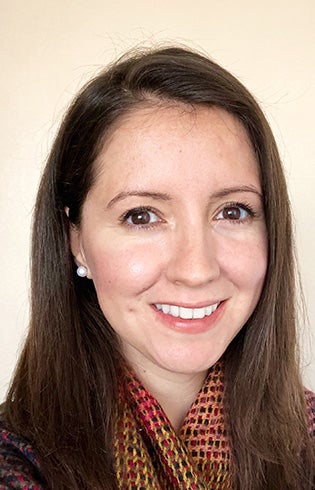
International experts gather to discuss new immigration models
When Deisy Del Real’s studies on immigration took her to Argentina, she felt a sense of acceptance there that pleased her. The country had recently passed laws making immigration a human right, expanding constitutional protections to all people in the country regardless of legal status and promoting mechanisms that ensured immigrants had access to legal services to help them start down the path to residency and citizenship.
“It just felt very welcoming to me,” says Del Real, Turpanjian postdoctoral fellow at the Equity Research Institute (ERI) at the USC Dornsife College of Letters, Arts and Sciences.

Del Real, who will join the USC Dornsife faculty in the fall as assistant professor of sociology, understands firsthand the difficulty immigrants face; her family came to the United States from Mexico when she was a child.
“I grew up an undocumented immigrant, and I have lived with the repercussions in my daily life for nearly two decades. And I couldn’t imagine things being done in a different way,” she says.
But there are different ways of doing things, Del Real notes, and on April 13, experts at “Encuentro: Defending Migrants Rights Across the Americas” will look at several of them. The conference, sponsored by ERI and USC Dornsife’s Center for Latinx and Latin American Studies, brings together policymakers, activists, journalists and academics from five countries — Argentina, Chile, Brazil, Uruguay and the U.S. — to discuss the immigration policies being implemented by various nations in North and South America.
“I hope what people get out of this conference is a different lens on how to see migration. The discussion tends to be open borders or full restriction, but there’s a lot of things in the middle,” Del Real says.
She points to Uruguay as another model for immigration policy. In 2008, the country passed what she calls “the most welcoming and progressive immigration law in the world.” The law eliminated the period of temporary residency and allows immigrants to apply directly for permanent legal residency. It also tasks the state with ensuring immigrants receive legal services that help them gain legal status.
Del Real adds that when countries like Argentina and Uruguay were crafting their immigration policies, they pointed to the U.S. as an argument against full restriction. Despite its efforts to control the border, the U.S. often finds itself completely unable to do so, leading to a large number of undocumented immigrants who are impossible to monitor, she says. Other countries have adopted a different viewpoint.
“If you can’t stop people from coming in, the best way to ensure that immigrants abide by the law is to get them into the justice system. Give them legal residency and identification cards and get their biometric information, so that if they commit a crime, they will be in the system, just like anyone else,” Del Real says.
But, she says, rather than focus on people as potential threats, it’s more productive to provide a welcoming attitude. Some South American countries have launched programs aimed at inspiring empathy and understanding between immigrants and the local population, encouraging people to “receive immigrants in the same sense of compassion they hope their loved ones would be received if they had to migrate.”
Del Real will expand on these ideas and others during the conference.
More information about “Encuentro: Defending Migrants Rights Across the Americas,” including how to register, is available on the ERI website.